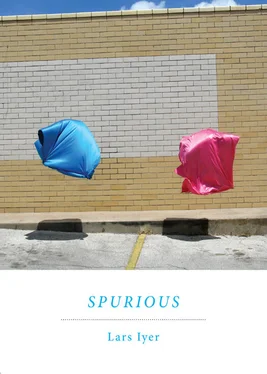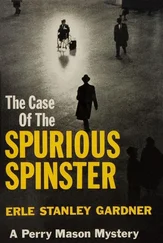She warned me I wouldn’t be able to cook, I tell W. Never mind! I said, and meant it. For months, I said, there was no electricity in the kitchen. Nothing worked; I couldn’t cook, even if I wanted to. For months! Because of the damp! Because the electricity was affected by the damp! In the end, I had to get the kitchen rewired. — ‘I’ve never seen anything like it’, said the electrician. Not even in an old house? — ‘Never’, he said.
W. always flails about when he has to do administrative work. He pings me obscenities and shaky drawings of cocks. He rings me up and asks me how much I’ve eaten. This seems to calm him.
I always exaggerate. I’ve eaten too much, I tell him, far too much! — ‘Go on, tell me, what’ve you eaten?’ I tell him he’s a feeder. — ‘Go on, tell me’, says W., getting excited. ‘How fat are you now?’
All jobs are becoming the same, W. observes. We’re all administrators now, all of us. What do any of us do but administer? We administer and prevaricate about administration. Work time is either administration time or prevaricating about administration time, which occupies an enormous part of W.’s day, he says.
He doesn’t know how I just get on with it , he says. He’s always marvelled at it: my ability to launch myself into administration, to get to work early, to sit at my desk and begin. It’s incredible, W. says, though it also indicates there’s something very wrong with me. There’s something wrong with my soul, he says.
For his part, W’s given to endless prevarication. He can never make a start, no matter how early he gets in. He stares out of the office window instead, W. says. He makes himself some tea, he says, and sips at it amongst the great parcels of books that get sent to him for review.
His life is absurd, says W. It’s a living absurdity, and mine is no better, although I have the strange capacity to just get on with it . Where does it come from? W. wonders. Who am I trying to please?
I always feel the world’s about to end, that’s what W. likes about me, he says. I always think I’m about to be found out and shot. I want to lick the gun I think is pointed towards me, he says, which is why I’m such a good administrator.
But this apocalypticism is the reason I’ve succeeded to the extent that I have, W. reflects. Whereas I’m all apocalypticism, W. says, he’s all messianism: he’s always full of joy and serene indifference to the world. What I suffer, he laughs at as the most extreme folly.
It’s all mad, he says. The world went mad some time ago. — ‘But you take it too seriously’, he says. In the end, I want only to be spoken to gently and soothingly like a wounded animal, a dog run over at the side of the road. — ‘But that’s how they talk when they’re about to shoot you’, W. says. ‘And they are going to shoot you, no matter how much you lick the barrel’.
Perhaps I want to be shot, W. muses. Perhaps that would be the kindest thing that could be done for me. But he has an application to write, that’s why he’s phoning me, he says. He’s applying for a job in Canada, he says. He needs motivation. — ‘Give me a sense of urgency’, he says. ‘Give me a sense the world’s about to end’.
Even now, despite everything, W. dreams of Canada. Everything would be okay if he got there, W. says. He could start again in Canada, begin a new life. Imagine it! W. in Canada, close to the wilderness as everyone in Canada is close to the wilderness, W. peaceable and calm as everyone in Canada is peaceable and calm. He would be a different kind of man, says W., a better one.
Ah, Canada, with its pristine blue lakes and bear-filled wilderness! Of course, W. is Canadian, and his Canada is not a fantasy. It’s based on his own childhood by the great blue lakes and on the edge of the wilderness, and alongside the open-hearted Canadians.
They had a big house, he remembers, and went swimming every day. They were happier then. Once he showed me a photograph: a happy family, by a big house, with pine trees behind, and a big blue lake to swim in. And who are those people? I ask him. Canadians, says W., open-hearted Canadians.
Moving back to England was the disaster, says W. Wolverhampton of all places! England’s bad enough, but Wolverhampton! He shows me pictures of himself in school uniform. It had all gone wrong by then, says W., can’t I see it in his eyes? I can see it. Ever since then, says W., he’s dreamt of getting back to Canada.
It’s not impossible, he says. His sister’s made it. She’s a Canadian now. Or perhaps it’s impossible for him, and for the likes of us. — ‘It would be impossible for you in particular’, he tells me. ‘The Canadians wouldn’t put up with you for a moment’. Canada! It’s a big country, unlike England, says W. And cheap, too — he was there a couple of years ago on holiday, and was amazed. It’s cheap, and the people are open-hearted. — ‘Not like the English’, he says.
Children rap on his windows as we talk. What do they want? — ‘Ignore them! Close the shutters!’, he says, and we sit in darkness with our gin. Are there feral children in Canada? I ask W. He doesn’t think so. It has a good social security system, he says, and an egalitarian attitude. They pay well, too. Salaries are high. Canadians enjoy a high standard of living, with their blue, pure lakes and the great tracts of wilderness.
Would the cold bother him? I ask W, who always moans he’s cold. It’s not a wet cold like over here, says W. It’s a dry cold, completely different. It doesn’t feel anything like as bad. And it’s not as depressing. You don’t get wave after wave of Westerlies coming in from the Atlantic. In England, we’re battered by Westerlies, says W., but in Canada, the weather is as pure and simple as the lakes and the open-hearted people.
What about the bears — wouldn’t they frighten him? I ask W., who is not a brave man. There are ways of dealing with bears, W. assures me. The Canadians issue pamphlets on the matter. They probably keep things in the back of their cars to scare them off. Bear-frightening devices. Wouldn’t he have to learn to drive in Canada? I ask W. It’s a big country after all, and there are miles of wilderness to negotiate. W. admits he might have to. He’d take lessons, he says. That would be part of his new life.
And what if he broke down? I ask W. He’d have to learn some basic car maintenance, W. admits, for the Canadian wilderness. But he’s practical, he says, and would pick it up quickly, not like me. — ‘You wouldn’t last a minute in Canada’, he says.
Every year, I write long and elaborate letters to places of employment in Canada on behalf of W. I write of him as the finest thinker of his generation , or as the thinker surest to mark the age with his name . I take dictation from W., who speaks of his commanding presence and his extreme intelligence . He is a thought-god , says W., no don’t write that down. He is the best of the best of the best , says W., don’t write that down either.
But we hear nothing from the Canadians. They remain silent and distant, as remote as Martians. To console ourselves, we imagine the endless plains of the Yukon. The Canadians are busy in the wilderness, we decide. They’re boating on their many lakes or hiking through their many woods. They’re an outdoor people, we decide, and not given to replying to letters of absurd overpraise.
We’ve never liked crossing roads. Now the bridge by the station has come down, we have to run across the road in a blind fury, me with my rucksack, W. with his man bag, pausing only on the bush-covered verge between the two lanes.
We push our way through the bushes. We’re halfway! But we still have half a dual carriageway to cross. It’s fearsome! We pause for a moment and then run like idiots, heads down and in fear of our lives to the other side of the road.
Читать дальше












